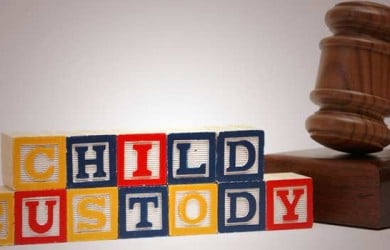10 Pros and Cons of Getting Sole Custody of a Child

 Listen to this article
Listen to this articleGetting sole custody of your child will be a dream come true, but it isn’t without its challenges.
Sole custody is not usually the favored choice for courts. Still, there are many reasons why one parent may be chosen over the other – such as abuse, neglect, mental illness, incarceration, or substance abuse.
Being the sole legal custodian of your child is rewarding. You know exactly where your little one will lay their head every night and take pride in knowing you are solely responsible for making important decisions about their life.
You may have questions if you’re entering a custody arrangement with your ex.
- What is sole custody?
- Do sole custody and child support work together?
- Sole custody vs. full custody – which one is better?
Don’t go into a sole legal custody agreement blind. Here is everything you need to know about becoming a custodial parent, plus 10 pros and cons of getting sole custody.
What is sole custody and its types?
Unless you are a lawyer, the different types of child custody can be a confusing whirlwind of legal terms, leaving your head spinning. What is sole custody? Is there such a thing as sole joint custody?
Here is a simplified breakdown of sole custody vs. full custody arrangements:
- Sole physical custody means your child lives with you exclusively but can still have contact with their other parent.
- Joint physical custody means the child lives with both parents on a predetermined schedule and is allowed to have complete involvement in their child’s life.
- Sole legal custody means that you are the only one who is legally allowed to make decisions for your child.
- Joint legal custody means both parents have legal rights over the child. The child lives with both parents on a planned schedule.
Difference between sole legal and sole physical custody
Sole legal custody and sole custody are two different things. The answer comes down to who can and cannot make legal decisions for the child.
Having sole physical custody of your child means that they live with the parent awarded custody.
Does sole custody terminate parental rights? No. However, if you have sole legal custody of your child.
Legal sole custody gives only one parent the responsibility to decide different aspects of their child’s upbringing, such as their medical care, housing, schooling, and religion.
5 pros of sole legal custody
Here are some important pros of sole legal custody that you should know before filing for it.
1. Puts life in perspective
Regardless of the reasons for sole legal custody, nothing puts your life in perspective quite like gaining sole legal custody of your little one.
This can help both parents focus on putting the child first. No matter who has sole custody of a child, you and your partner should always strive to work together when possible.
Even though you and your ex are no longer together, you can both still benefit from marriage therapy.
Instead of working on your romantic relationship, couples therapy can help partners learn how to improve communication and navigate divorce in a way that puts their children’s well-being first.
2. There are no conflicting parenting views
What is sole custody? It’s control over what direction your child’s life goes in.
Parents with differing views on religion, politics, and schooling can confuse a child.
Having sole legal custody means you will get to guide your child in the ways of life that you think is most beneficial for them without worrying about your ex’s opinions complicating things.
3. Reduces damaging parental conflict
Divorce doesn’t typically happen to happy couples. One of the reasons for sole legal custody is if one parent is deemed unfit.
By separating, you are reducing damaging parental conflict and abuse. Your child no longer has to endure the harmful effects of violence, addiction, or emotional abuse in the household. Or, at the very least, your child no longer has to see you and your partner argue.
Maggie Martinez, LCSW, states,
Children are extremely susceptible to anything negative that is happening in the home. If you can protect your children from seeing that as an example, you have a duty to do so.
4. It creates consistency
What is sole custody? It is consistent and stable.
Children thrive on routines and will feel safe and secure knowing where their bedroom is, where their school will be, and where they will spend important dates in their lives.
Maggie Martinez further highlights,
Children like consistency because they enjoy the predictability. Consistency is comfortable for them because change can often be scary.
Watch this video to learn more about raising children well without over-parenting them.
5. It forces an easy-to-follow schedule between parents
One of the best parts of having sole legal custody is that it forces you and your ex to create a sole custody parenting plan.
This parenting plan outlines the visitation rights of the noncustodial parent and clearly states the responsibilities of each parent.
This parenting plan about sole custody agreements makes it easy for the parents and child to know the following:
- Who is getting the child during important days
- How each parent plans to discipline the child
- Visitation times and how the transfer will occur
- Protocols for each parent regarding dating, relationships, and new marriages
- Times to discuss revisions to the parenting plan
- Information and agreements regarding the child’s medical plans or health requirements
And any other specifics that are outlined by the courts.
5 cons of sole legal custody
It’s important to know the negatives of filing for sole legal custody.
1. You take on all the stressful decisions alone
Having sole legal, physical custody of your child means they live with you, and you are the only person to make life decisions for them.
This gives you control over the direction your child’s life goes, but it can also be stressful when you begin to second-guess yourself.
2. It may create a wedge between you and the other parent
You’ll feel confident if you received sole legal custody because of your ex’s addictions or dangerous behavior.
However, if your ex-partner had their heart set on shared custody but a complication (such as living in different cities) prevented that, even sole custody with visitation rights can feel like a slap in the face to them.
This can be a devastating blow to your ex that stirs up resentment and limits their involvement in your child’s life.
3. Difficult psychological adjustment for the child
There is no shortage of studies about the harmful effect of divorce on children. Research by the Department of Sociology at the University of Nebraska Children found that children continue to score lower academic achievements if they live in a one-parent household. They are also more likely to experience poor conduct, socialization, and psychological adjustment.
Maggie Martinez, LCSW, says,
Even though children in one-parent households might have less positive social outcomes, it is still better than living in a house where trauma or abuse may be occurring.
The study reveals that children of divorce typically spend less time with their father and less time with both parents overall.
4. Increased financial load
Even when sole legal custody and child support go hand in hand, you are taking on more of a financial load than before. You’ll be paying for groceries, diapers, formula, childcare, school – the list goes on and on.
Studies show that children living with a single mother are more likely to experience poverty than a child living with both parents. This puts an enormous financial strain on single parents, specifically mothers.
5. Solo parenting is lonely
You may have friends and family to support you, but there is nothing as helpful as having a spouse to tap out with when you’re overwhelmed.
Even if you know your divorce was for the best, solo parenting can still make you feel lonely. You may find yourself watching other couples out about feeling a tinge of jealousy. This is natural.
The Journal of Clinical & Diagnostic Research found that loneliness can lead to mental health disorders, difficulty sleeping, and harm physical health.
Further studies reveal that breakups trigger a decline in life satisfaction and increase psychological distress.
FAQs
Let’s discuss the most asked questions related to pros and cons of getting sole custody of a child.
How does sole custody work?
Soul custody is an arrangement where the child lives with one parent. Their time is not split between each parental home.
This means only one parent has sole physical custody of their child.
This does not mean the other parent had no access to the children. They may still spend time together, but the child will not live with them.
Does sole custody terminate parental rights?
Whether you are the parent who gained sole custody or the parent who did not, you may be wondering: does sole custody terminate parental rights?
No, it does not.
Many courts will award sole custody to one parent but joint guardianship to both the mother and father, meaning they both have legal rights over the child.
Unless one parent has their rights legally terminated, both will be able to make decisions for the benefit of the child.
What type of custody is best for a child?
Many will say that a 50/50 custody arrangement will be the most beneficial for a child since it allows them to spend quality time with both of their parents.
That being said, only you know whether a sole custody agreement is going to be the best choice for your child.
No matter what arrangement you choose and regardless of how each parent feels about the other, above all else, make your shared focus that of your child’s safety and physical, psychological, and emotional well-being.
Takeaway
You will have to weigh the benefits of sole custody vs. full custody for your family.
Some of the benefits of sole legal custody are working with your ex to give your child a good life, raising your child without conflicting parenting views, taking your child out of a potentially dangerous situation, and creating consistency for both parents and child.
Sole custody and child support are not without their complications, of course.
Some cons of sole legal custody include parental loneliness, resentment from the noncustodial parent, difficulty adjusting, stress, and an increased financial load.
Ultimately, only you can decide what is right for your child. Whoever ends up with sole legal custody of your little one, do your best to put your child’s interest first.
 Expert Q&A
Expert Q&A
Trusted by +5 Million People
Ask your question related to this topic & get the support you deserve from experts.
 Tips
Tips
Share your valuable relationship tips with +5 million people
Share this article on
Want to have a happier, healthier marriage?
If you feel disconnected or frustrated about the state of your marriage but want to avoid separation and/or divorce, the marriage.com course meant for married couples is an excellent resource to help you overcome the most challenging aspects of being married.
 Thanks for your feedback!
Thanks for your feedback!



























 We'd love your feedback!
We'd love your feedback!